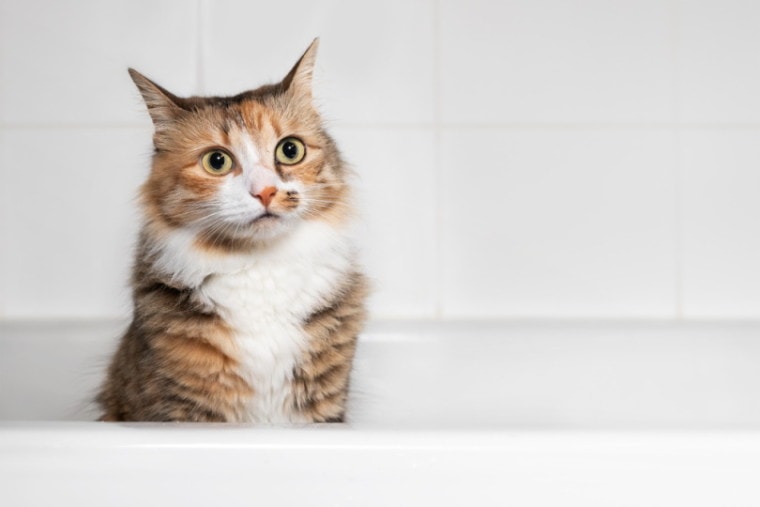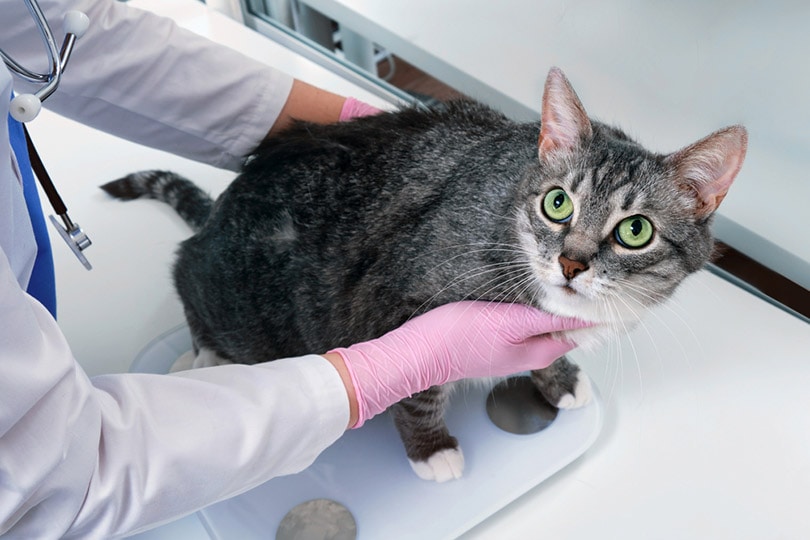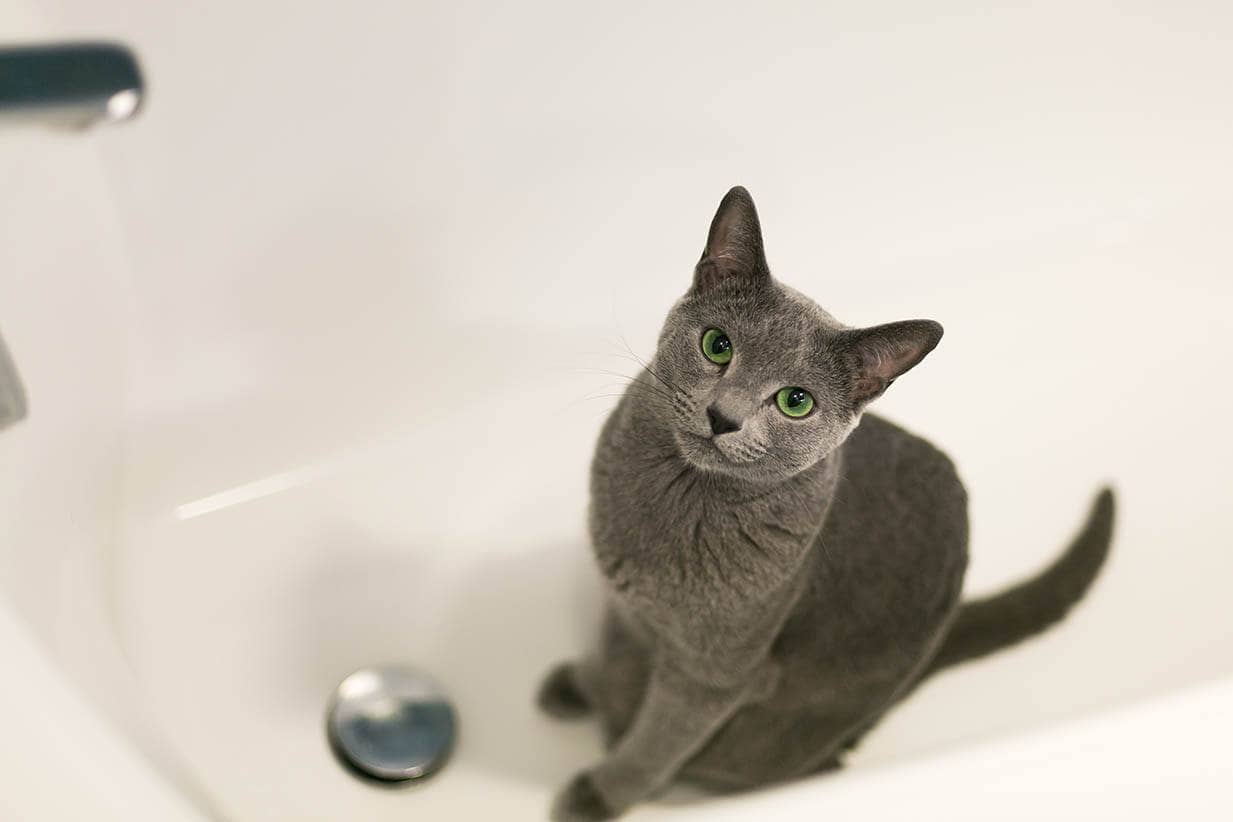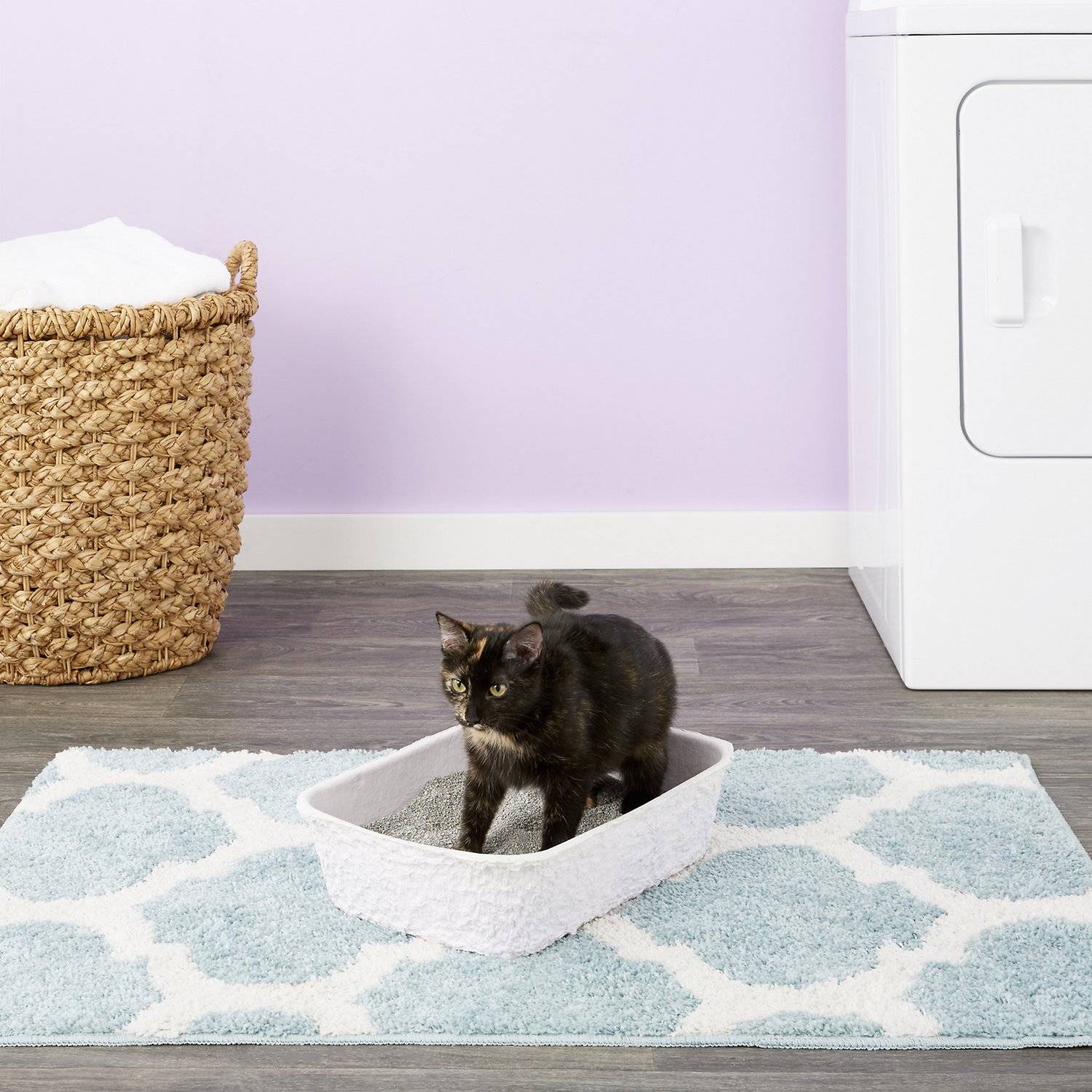
Cats tend to be low-maintenance and well-behaved pets. They can be trained to use a litterbox reliably, reducing your cleaning tasks to scooping out soiled areas and refreshing litter every so often.
However, it’s not unusual to run into problems every so often. One such problem is your cat pooping in the bathtub, which could range from a medical issue to something as simple as a dirty litter box. Your bathtub is a nice, smooth surface that’s always clean, which can appeal to your cat as a bathroom of its own.
This is an unsanitary and frustrating habit for you, of course. Here are some potential causes of a cat pooping in a litter box and what you can do about it.
The 6 Reasons Why Your Cat Poops in the Tub
1. Medical Issues

Whenever your cat relieves itself outside of the litter box, checking for underlying medical causes is the first step. Your cat could be dealing with any number of digestive issues, including constipation, diarrhea, colitis, irritable bowel syndrome, or simple indigestion. If your cat is uncomfortable when it goes, it may associate going with the litter box and avoid it.
If you suspect this is the cause, taking your cat to the vet is important to rule out health causes. Depending on the possible problem, you may have options for medication or other interventions that can make your cat more comfortable and prevent this problem in the future.
2. Psychological Issues
Aside from physical causes, your cat could suffer from psychological problems impacting its bathroom habits. Just like humans, cats can experience mental health issues that affect behavior, such as depression, anxiety, stress, cognitive dysfunction, and more.
If you suspect your cat has been experiencing mental issues that are causing unpleasant behaviors, a vet visit is in order. You may be able to manage the situation with medication or identify and remove the source of stress. If your cat is elderly, it may be experiencing a cognitive decline (like dementia in humans), impacting its litter box habits.
3. Safety
Cats are sensitive to their environments. Your cat may be willing to use the litter box but feeling too vulnerable to use it. When this happens, your bathtub offers a safe and secluded spot that may make your cat feel more comfortable.
The causes of your cat’s discomfort with the litter box can vary. Another cat may have ambushed it in a litter box in the past, may have been startled by a loud noise, or may feel too far away from the rest of the family due to the litter box’s location. Cats have instincts to keep them safe—no matter how non-threatening you make the space, cats can’t just shut those instincts off. See if adding a second litter box to another room helps, and try to find an open and quiet space.
4. Territoriality
Cats are territorial creatures. Often, cats will leave their poop uncovered as a sign that the space is their territory and to stay out of it. If you have multiple cats in your household, or you added another family member, like a dog or a roommate, your cat may need to establish its territory more than it did in the past. And this may include your bathtub.
If you have multiple cats in your household, having more than one litter box is vital. Generally, the rule is one litter box per cat plus an extra. You may wish to put litter boxes in different areas to help your cat feel like it has its own space. If the issue could be a dog, ensure the litter box is a safe space to which the dog can’t get.
5. Habit

Your cat may be pooping in the bathtub out of habit. Perhaps it happened due to a medical or emotional issue in the past, and now it’s a habit, or it could be left over from its previous living situation. Even if the issue that caused the behavior is resolved, your cat may have just gotten comfortable using the bathtub instead of the litter box.
The solution is NOT to prevent your cat from getting near the bathtub. If you restrict access to the bathroom, your cat will just find another spot to go. There was probably some reward that reinforced the behavior when it first happened, such as a better environment (with territoriality or fear), a more comfortable place (as with medical issues), or attention, even if it was negative attention from you. To combat this, use positive reinforcement to reteach the habit of using the litter box, such as offering treats or praise when it’s finished.
6. Litter Box Issues
Pooping in the bathtub may have less to do with the tub and more to do with it not being the litter box. Cats can be picky about their litter boxes and may refuse to use them. Everything from the cleanliness to the ambient noise to the type of litter can impact whether your cat is satisfied with the litter box.
You can address this by determining what isn’t ideal about the litter box. Consider the type of litter box (its size, style, coverage, etc.) and its location. Is the cat vulnerable or exposed? Can it be trapped by other cats or dogs? Then, consider its location and the type of litter you’re using. Cats have preferences for scents, litter type, and more. You should also consider if you have enough litter boxes and they’re kept clean—cats don’t like to use soiled litter boxes, especially in multi-cat households.
How to Stop a Cat From Pooping in a Bathtub
You have some ideas for what could be causing the pooping in the bathtub, so now you need to stop the behavior. One good way is to leave a small amount of water at the bottom of the tub, which will keep your cat out of it. You could also put the litter box in the tub as a small step toward getting your cat to use it again, then move it once the habit is reestablished.
Remember that your cat always has an underlying motivation to use the tub instead of the litter box, and you need to determine what it is. Leaving water in the tub is a short-term retraining measure, not a permanent solution. Locking your cat out of the bathroom also isn’t a solution since your cat is likely to find other places to go until you find and correct the underlying cause.
Even if you keep a clean and tidy litterbox, you probably still find yourself with cat odors and stains around the house – but with the Hepper Advanced Bio-Enzyme Pet Stain & Odor Eliminator Spray, you can permanently remove even the very worst pet stains and smells! Click here to learn more and get yourself a bottle.
- ADVANCED ENZYMATIC CLEANER - Penetrates the most stubborn smells and stains at the deepest molecular...
- FOR ANY MESS, ON ANY SURFACE - This pet odor eliminator cleans your carpets, floors, furniture,...
- FRESH, NATURAL ODOR - Our unique formulation doesn't rely on dangerous or unpleasant chemical...
At Pet Keen, we’ve admired Hepper for many years, and decided to take a controlling ownership interest so that we could benefit from the outstanding products of this cool cat company!
 Conclusion
Conclusion
If your cat poops in the bathtub, you know how frustrating and unsanitary the habit can be. Cats are typically reliable with the litter box, so if your cat is going outside of it, there’s likely an underlying cause. It’s important to find out what is bothering your cat and correct it to ensure you won’t be surprised by poop in your bathtub.
Featured Image Credit: sophiecat, Shutterstock





 Conclusion
Conclusion



